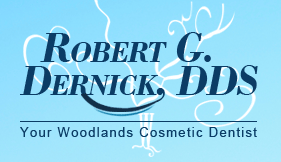Dental Sealants: The Advantages for Adults
A healthy smile goes hand in hand with overall well-being, and preventive measures are instrumental in maintaining good dental health. Dental sealants have emerged as a popular preventive treatment. Initially designed for children, dental sealants are thin protective coatings applied to the chewing surfaces of back teeth. As dental care continues to evolve, it is crucial to explore the benefits of dental sealants and evaluate their suitability for adults. This article highlights the advantages of dental sealants and examines their effectiveness for adults.
Understanding Dental Sealants:
Dental sealants serve as a protective barrier, shielding teeth from decay-causing bacteria and food particles. Dental sealants are composed of a plastic material, usually resin. It is applied to the molars and premolars, creating a smooth surface that seals natural pits and fissures. By filling in these crevices, sealants provide additional protection against tooth decay.
Benefits of Dental Sealants:
- Prevention of Tooth Decay: Dental sealants act as physical barriers, preventing the accumulation of plaque and food particles in the deep grooves of teeth. These areas are often challenging to clean effectively, making them more vulnerable to decay. Sealants offer an extra layer of defense, significantly reducing the risk of cavities.
- Long-lasting Protection: With proper care, dental sealants can last several years, contributing to long-term dental health. Regular dental check-ups ensure the sealants remain intact and functional, effectively protecting against decay.
- Cost-effectiveness: Dental sealants are a cost-effective preventive measure compared to restorative dental procedures such as fillings or root canals. Investing in sealants early on can save individuals from potential future dental complications and the associated financial burden.
- Painless and Non-invasive: Applying dental sealants is quick, painless, and non-invasive. Unlike other dental treatments, sealants do not require drilling or removal of tooth structure. This makes them an appealing option for individuals with dental anxiety.
- Improved Oral Hygiene: Dental sealants promote better oral hygiene by providing a smooth surface that is easier to clean. Brushing and flossing become more effective with fewer crevices for plaque to hide. Sealants also discourage the accumulation of staining agents, contributing to a brighter smile.
Suitability of Dental Sealants for Adults:
While dental sealants were initially designed for children and teenagers due to their higher susceptibility to decay, recent studies suggest that adults can also benefit from them. Even if adults have experienced some level of tooth decay, sealants can effectively prevent further damage and the need for more invasive treatments.
Adults with deep grooves and pits in their molars and premolars, prone to plaque retention, are suitable candidates for dental sealants. Additionally, individuals with a history of dental caries or those at a higher risk of developing cavities may benefit from sealant application. Your dentist will evaluate your oral health and determine your sealants’ suitability.
It is important to note that dental sealants do not replace regular oral hygiene practices. They work with brushing, flossing, and routine dental visits, reinforcing preventive measures.
Conclusion:
Dental sealants offer numerous advantages, including decay prevention, cost-effectiveness, and improved oral hygiene. Although initially intended for children, these protective coatings have also proven effective for adults. By sealing the deep grooves and fissures in molars and premolars, dental sealants act as a powerful barrier against tooth decay-causing agents. Embracing dental sealants as part of a comprehensive oral care routine can help adults maintain optimal dental health and preserve their beautiful smiles for years to come.




